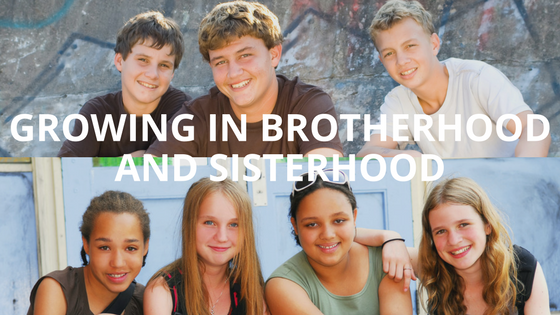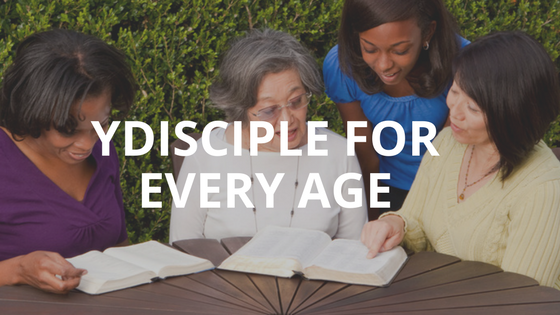
“When asked at what age they no longer identified themselves as Catholic, 74 percent of the sample said between the ages of 10 and 20, with the median age being 13 years old.”
– McCarty and Vitek, Going, Going, Gone: The Dynamics of Disaffiliation in Young Catholics (St. Mary’s Press and CARA. 2018)
Now more than ever, people are looking for effective ways to evangelize and catechize middle school students. The ages 11-13 are critical ages for personal formation, and arguably one of the most difficult periods of time for today’s youth. Middle school students are in need of mentorship and authentic relationships during this time, but sometimes, we as adults can struggle to meet students of this age where they are.
The vast majority of the resources for youth ministry are created for high school students, and YDisciple is no exception. YDisciple’s methods and materials were designed with high school students in mind, both intellectually and developmentally. That being said, there are several leaders in the field who have adapted YDisciple to make it work and thrive in a middle school context. After all, middle schoolers are capable of faith-sharing, growing in their relationship with the Lord, and they definitely experience the same needs for guidance and meaningful friendships as high schoolers. Adapting YDisciple to their age-group requires work, but when it is done well, YDisciple can be a very effective method for reaching this often unreachable segment of our youth.
Best Practices for Adapting YDisciple for Middle School:
- Take it slow. To better suit middle schoolers’ attention span, leaders are splitting each YD session in two. For example, instead of covering Session 1 of “Follow Me” in one week, leaders spread it out over two weeks. Or, you can choose just one or two scenes from the videos to show each week, instead of the whole lesson.
- Stick to the concrete. Adapt the reflection and discussion questions to be more concrete than abstract. 7th graders are just starting to use abstract thinking, and are more likely to learn from and maintain steady discussion on topics and examples that are present in their lives.
- Make it personal. Take time before any content or discussion to check-in concerning their personal lives. Make it a regular practice to share highs and lows since the last gathering. Middle schoolers are developing a need for peer approval and giving them this opportunity to be open and vulnerable helps them grow in self-awareness.
- Guide them in expressing their faith. Learning to talk about faith is a skill. Help them hone this skill by asking consistent questions every week aimed at recognizing and articulating encounters with God. For example: “Where did you see God in your life this week?”
- Add more activity. Doing an activity in the middle of a meeting can help burn energy and refocus students. Additionally, if you complete a full YDisciple study, don’t move into the next one immediately. Take a break the next week break to do a different sort of activity together, such as a service project or social event. For ideas, you can check out our list of one-off activity sessions on FORMED.






